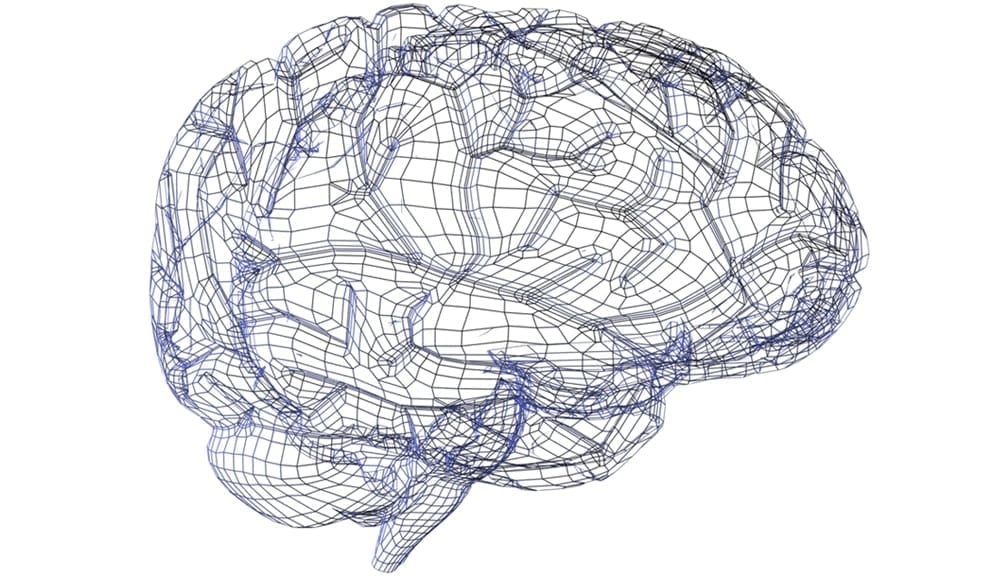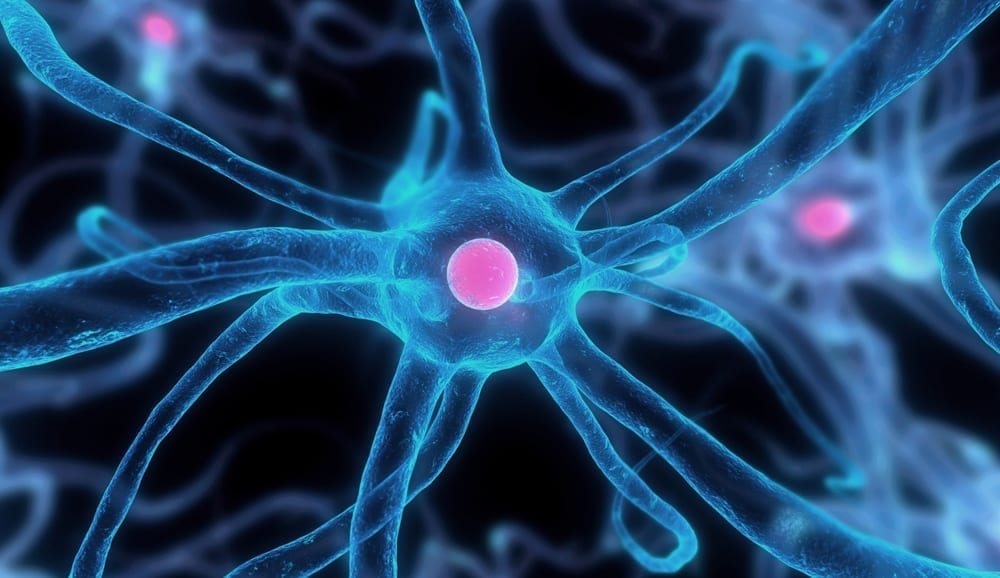Brain Injury Recovery with Omega 3 Fish Oil
One year ago, our family was in an uproar. A close family member needed brain surgery, which was scary enough. Then, a week after this major procedure, he contracted a life threatening form of bacterial meningitis.
I visited him many times as he fought for his life in the hospital. He was so out of it, he often didn’t know my name. It was painful to see this high functioning, intelligent and caring man struggling to remember where he was, the day of the week or even why he was in the hospital.
Frantic to help, my husband, Bo, and I brought him bottles of Omega Cure and advocated for the hospital to administer a high dose of liquid fish oil every day. Knowing the research on omega-3 and the brain, we felt that this could be the ticket to preserving his future.
Three Brain Issues Improved with Omega-3
Fish and fish oil have a reputation as great “brain food,” and today’s research studies continue to uphold that claim.
Much of the omega-3 literature to date has focused on the fishy stuff’s role in improving focus, performance, and cognitive development of babies and young adults. For instance, a 2012 study by researchers at the University of Pittsburgh (1) determined that consuming more omega-3 could improve a young adult’s working memory.
But omega-3 also appears to deliver protective and restorative benefits for the brains of older adults. Let’s look at the research surrounding three of the most common types of brain issues:
1. Effects of Aging
From age 40 onwards, it’s all downhill, my mother used to joke. And there is some scientific truth to that. After 40, the volume of the brain decreases by 5% for every decade, with the hippocampus region often taking the biggest hit (2). Since the hippocampus is the part of the brain that encodes memories, the loss can help explain why many people become forgetful with age.
Researchers agree that the Western diet, with all its inflammation-promoting foods, exacerbate the aging process. Still, there is hope for all of us over 40. Animal studies show that diets rich in omega-3 and low in omega-6 reduce cognitive decline (3).
2. Stroke Recovery
Strokes are the leading cause of adult motor disability in the Western world. The majority of strokes are caused either by a thrombosis or an embolic clot lodging itself in a blood vessel in the brain, blocking the necessary flow of oxygen and blood. The remaining 20% of strokes occur when an artery bursts in the brain, often due to preexisting high blood pressure (4).
Plenty of studies show that omega-3 can help reduce the risk of thrombosis, as well as high blood pressure. However, omega-3 can play a crucial role in helping the brain recover even after a stroke has occurred. When researchers supplemented mice’s diets three months before and one month after a stroke, revascularization and angiogenesis (both crucial for tissue healing and development) significantly improved.
In the same study, the researchers also found that the omega-3 supplementation protected the newborn neurons in the mice brains, helping them survive after stroke injury (5).
3. Traumatic Brain Injury (TBI) Treatment
Traumatic brain injuries — be they from serving in the military, playing sports, being involved in traffic accidents, or sustaining a fall — are one of the leading causes of death in children and adults from ages 1 to 44 (6). Even if the result is not fatal, traumatic brain injuries can cause permanent brain damage and impair a person’s memory, learning ability, and motor coordination for life.
Luckily, omega-3 can have a protective benefit, especially if administered shortly after the injury. Animal studies have shown that when the subjects receive DHA (one of the long chained types of omega-3 fatty acids) up to two hours after a brain injury, it improves neurological function and nerve cell survival, reduces inflammation and decreases oxidative stress.
DHA given prior to the injury also promotes cell survival and function. Another study from Sweden also showed that resolvins – molecules naturally produced from omega-3 fatty acids – can improve nerve cell function when given within 24 hours after surgery (6).
In the brain, excessive inflammation can mean neuronal loss.
Why Does Omega-3 Help Protect the Brain?
One of the primary reasons that omega-3 is crucial for the brain (and the rest of the body) is that it helps fight inflammation. Now, inflammation serves an important purpose. If you cut yourself or twist an ankle, inflammation starts the healing process in the form of redness, swelling, heat, pain and loss of function.
Normally, the inflammation response is self-limiting. But when there are not enough pro-resolution molecules lying around, inflammation continues to smolder and attack previously undamaged cells. In the brain, excessive inflammation can mean neuronal loss, which explains why omega-3’s anti-inflammatory properties are so important for healthy brain function.
When thinking about the anti-inflammatory properties, however, it is important to remember that omega-3 is not just one molecule. It is a family with many members, encompassing not just the better-known EPA and DHA molecules, but also the lesser-known DPA and yet-unnamed substrates. These members serve different roles in the body and brain. Because the omega-3 family works together in synergy, we need full-spectrum oil that contains all the members – not products that focus only on DHA or just EPA or some other component.
The Road to Recovery
One year later, I can report that my family member made a remarkable recovery. He is working again, more physically active than before, and has retained all the warmth and personality he had before surgery. He partially attributes his incredible recovery to Omega Cure, and is faithful about taking his cod liver oil every day.
And as for me, I feel grateful that I was able to help. Fearful as I felt seeing him in the hospital room, I was glad I was able to provide him with the essential nutrition his brain needed to recuperate.
An Effective Omega-3 Dose, Made Simple
Experience the Omega3 Innovations difference for yourself with the most effective fish oil supplement on the market.
Buy Now
1. Narendran R, Frankle WG, Mason NS, Muldoon MF, Moghaddam B (2012). Improved Working Memory but No Effect on Striatal Vesicular Monoamine Transporter Type 2 after Omega-3 Polyunsaturated Fatty Acid Supplementation. PLoS ONE 7(10): e46832. doi:10.1371/journal.pone.0046832.
2. Peters R. Ageing and the brain. Postgraduate Medical Journal. 2006;82(964):84-88. doi:10.1136/pgmj.2005.036665.
3. Grundy T, Toben C, Jaehne EJ, Corrigan F, Baune BT. Long-term omega-3 supplementation modulates behavior, hippocampal fatty acid concentration, neuronal progenitor proliferation and central TNF-α expression in 7 month old unchallenged mice. Frontiers in Cellular Neuroscience. 2014;8:399. doi:10.3389/fncel.2014.00399.
4. Your Brain: A User’s Guide (100 Things You Never Knew). National Geographic. Single Issue Magazine, 2012.
5. Zhang W, Wang H, Zhang H et al. Dietary supplementation with omega-3 polyunsaturated fatty acids robustly promotes neurovascular restorative dynamics and improves neurological functions after stroke. Experimental Neurology. 2015 Mar 12. pii: S0014-4886(15)00072-2. doi: 10.1016/j.expneurol.2015.03.005.
6. Graham Hauck. Omega-3 Fats Critical to Brain Health After Traumatic Injury and Surgery. International Society for the Study of Fatty Acids and Lipids. 30 June, 2014.
Recent Posts
-
Omega-3, Weight Control
Anti-Inflammatory Diet: What To Eat & To Avoid
Inflammation is a double-edged sword. It’s the body’s natural defense system, springing into action to heal injuries and fight infections. But when it goes into overdrive and becomes chronic, it...2 weeks ago -
Dose, Omega-3, Omega3 Innovations News
How to Tell if Your Omega-3 Supplement Is Working
[vc_row][vc_column][vc_column_text]Whenever we pick up a new habit to improve our health -- be it working out with weights, cutting down on refined sugar, or taking three teaspoons of Omega Cure® every...1 month ago -
Omega-3
Can Omega-3 Fish Oil Help You Lose Weight?
Over the years, I've often heard people say, "I'm not sure about taking a fish oil supplement...won't omega-3 fatty acids make me fat?” Unfortunately, the notion that all fat is...1 month ago -
Omega-3
9 Foods That Are Very High in Omega-3s
Are you looking to boost your omega-3 levels? That’s a smart move, considering that a staggering 80% of people fail to get even half the recommended daily intake of these...1 month ago -
Brain Health
Does Melatonin Help With Anxiety?
Anxiety is on the rise, no doubt about it. In 2024, 43% of adults reported feeling more anxious than they did the year prior. That's up from 37% in 2023...2 months ago -
Omega-3
What Is DPA in Fish Oil? What You Should Know
In the omega-3 fatty acid world, there are plenty of types and acronyms that come to the family party. We've got EPA and DHA, the two omegas that usually take...3 months ago








